Lemon Peel Benefits: 10 Surprising Uses For Health & Home
The scraps can add zest to your life, home, and health in many beneficial ways.
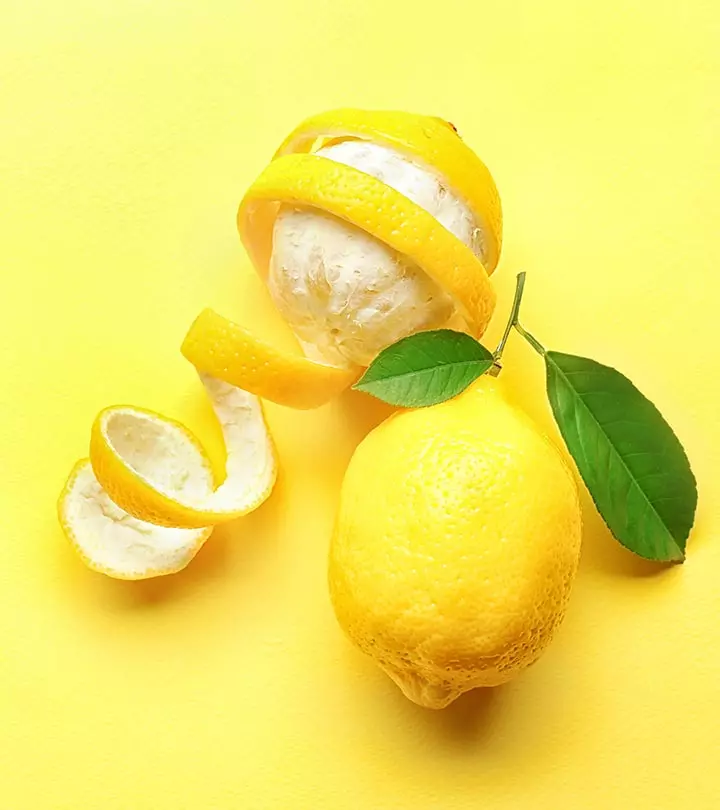
Image: ShutterStock
If you are among those who discard lemon peels after squeezing out the juice, brace yourself for some shocking news. You have been depriving yourself of the benefits of lemon peels all your life. Yes! Lemon peels are more nutritionally dense than lemons. They are high in vitamin C, pectin, calcium, potassium, fiber,AHAsi Called alpha hydroxy acids, these are organic, water-soluble acids that exfoliate the skin and strengthen the skin barrier. , and flavonoids like d-limonene. While they are often overlooked, lemon peels are a great source of vital minerals and bioactive compounds that have several health benefits. Lemon peels can be used for a variety of purposes, from enhancing skin health to adding zest to food. Including them in your lifestyle can be beneficial for your cooking and overall health.
Studies suggest that lemon peels may help induce weight loss, boost bone, skin, and heart health, and promote oral hygiene and the immune system. Moreover, they can be of great help as natural, non-toxic household cleaners, insect repellents, and deodorizers. Curious to know more of these surprising uses?
In this article, we have listed the 10 benefits of lemon peels, their nutritional profile, their possible side effects, the best ways to add them to your diet and beauty regimen, and more. So, let us get started!
 Know Your Ingredient: Lemon Peels
Know Your Ingredient: Lemon PeelsWhat Is It?
The flavorful, yellow-colored outer skin of the lemon.
What Are Its Benefits?
May help fight acne, reduce pigmentation, maintain oral health, boost digestion, and improve immunity.
Who Can Use It?
Unless you have gallbladder or kidney stones, lemon peels are safe for most people.
How Often?
You can take up to 3 teaspoons of lemon peels every day.
Caution
Avoid using lemon peels for topical application daily, as they may irritate the skin.
In This Article
10 Potential Health Benefits Of Lemon Peel
We often talk about lemon benefits when discussing wholesome natural ingredients for good health, but did you know that its peel is also packed with valuable nutrients? Let’s look at a few purported health benefits of lemon peel.
1. May Fight Acne And Pigmentation And Help In Anti-Aging
Lemon peel contains ascorbic acid and vitamin C in huge quantities (1). It also has a high concentration of antioxidants that help in detoxification. These ingredients are good for the skin as they help in delaying the onset of wrinkles, reducing blemishes, and slowing down the aging process (2), (3).
The vitamin C in lemon peel may brighten the skin and help reduce age spots. Vitamin C helps stimulate the production of collagen, which can, in turn, help in firming the skin (4).
Lemon peel also contains citric acid. Citric acid helps in skin rejuvenation and sloughing away dead skin cells. It can gently peel away the sun-damaged outer layer of the skin, which leads to a reduction in brown spots, fine lines, and wrinkles (5).
Alpha-hydroxy acids treat acne and improve acne-prone skin by working on the inner layers of the skin (5).
Folk remedies claim that traditional ubtans (Indian skincare scrubs) made with lemon and orange peels help in reducing cellulite and acne. However, there is no scientific research that supports this claim as these herbal compositions are not scientifically formulated and regulated.
Garima Madan, a blogger, tried lemon peel powder for her skin and shared her experience in her blog. She writes, “Lemon peel powder clears up the skin revealing a brighter and smoother complexion as it provides mild exfoliation and also helps in reducing blemishes and dark spots (i).”
2. May Promote Weight Loss

Lemon peel is rich in antioxidants, bioflavonoidsi Compounds commonly found in citrus fruits that help boost the immune system and aid in osteoarthritis treatment. , and various essential vitamins and minerals. The pectin in the lemon peel helps in weight loss and combating obesity (6).
Citric pectin was found to exhibit anti-inflammatory effects on certain gut bacteria linked with fighting obesity in a stimulated study using SHIME (Simulator of the Human Intestinal Microbial Ecosystem). These beneficial bacteria – such as Lactobacillusi Good bacteria found in milk and other dairy products that help boost the immune system and treat diarrhea. and Megamonas – responded positively to the extracts from the lemon peel (6).
A study conducted at the University of Southern California Medical Center has shown that pectin, which is a soluble fiber, decreases gastric emptying and increases satiety in people with obesity (7). These factors also play a major role in maintaining weight and reducing obesity. In fact, a recent study conducted on rats found that pectin increases the production of digestive enzymesi Proteins in the body that accelerate certain chemical reactions in the body and help promote overall metabolism. and hormones (GLP-1) which leads to a decrease in food intake, fat content, and body weight (8). Experimental evidence on humans is needed to further validate these claims.
3. May Help Maintain Oral Health And Hygiene
Lemon peel is also great for oral health and maintaining good oral hygiene. The deficiency of vitamin C is linked with bleeding gums, scurvy, and gingivitisi A mild gum disease that can lead to swelling or bleeding of the gums due to an excess plaque buildup in the mouth. (9). Lemon peel is abundant in vitamin C, so consuming it in various ways – such as lemon peel water or lemon peel tea – can combat dental issues such as dental abscesses and cavities.
The potent antibacterial properties of lemon peel can reduce gum infections caused by bacteria like Streptococcusi A type of good bacteria that lives in the throat and on the skin and aids digestion by breaking down food. mutans (10), (11).
A study conducted at the Tokaigakuen University (Japan) has shown that microbial growth can be inhibited by lemon peel as it contains compounds like 8-geranyloxypsolaren, 5-geranyloxypsolaren, 5-geranyloxy-7-methoxycoumarin, and phloroglucinol 1-β-D-glucopyranoside (phlorin) (12). More research is needed to understand the correlation between these compounds and the antimicrobial activity attributed to lemon peel.
4. May Improve Bone Health

Lemon peel helps improve bone health as it contains high amounts of calcium and vitamin C, which are essential building blocks of bones and our skeletal structure (1), (13).
A study conducted on mice has found that osteoporosis may be managed by administering ascorbic acid on a specific gene (14). Thus, lemon peel – which is rich in ascorbic acid – may have the potential to manage bone diseases and improve bone health. These observations are also promising and highlight the need for further research in this direction.
As mentioned earlier, lemon peel is rich in antioxidants. Antioxidants may help in reducing inflammation, which can aid in the management of autoimmune disorders such as rheumatoid arthritis (15).
5. May Treat Oxidative Stress And Detoxify The Body
Lemon peel is rich in vitamin C. Vitamin C is an antioxidant that controls cellular damage by scavenging free radicals or toxins released during stress or certain biological processes linked to cell death and aging (16).
Eliminating these harmful toxins helps in detoxifying the body and reducing stress at a metabolic level (15). Certain citrus bioflavonoids are also helpful in reducing oxidative stress, which, if left untreated, can cause cancer (17), (18).
An experimental study conducted on rats has found that limonene – which is found in lemon peel – accelerates enzyme activity and mucous production, which, in turn, reduces the oxidative stress associated with tissue damage (19).
In fact, a study conducted in Egypt has shown that the antioxidant activity of lemon peel is stronger than that of grapefruit and tangerine peels, making it a superior choice to detoxify the body (20). Thus, it may prevent cellular damage and detoxify the system from harmful chemicals.
6. May Have Anticancer Properties
Lemon peel has been linked to cancer prevention and treatment due to the compounds it contains, such as salvestrol Q40 and limonene. D-limonene has been found to increase the death rate of mutated cells and help in the inhibition of cancer cell propagation of gastric cancer in rats (21), (22). As these were studies on rodents, human-based studies would be warranted to draw any solid conclusions.
The other cancer-fighting substances found in the lemon peel are flavonoids. The intake of flavonoids has been shown to reduce the risk of breast and gastric cancers (23), (24). The citrus flavonoids called polymethoxyflavones (PMFs) exhibit anticarcinogenic activity by blocking the metastasisi The process of cancer cells spreading from the primary area to other parts of the body through the blood or lymphatic system. cascade inhibiting cancer cell mobility (25).
Despite these studies, the lemon peel should not be considered as a cure for cancer as more research is needed to validate these findings.
7. May Prevent Heart Conditions And Lower Cholesterol
Lemon peel can help manage cardiovascular disorders by preventing heart diseases, diabetes, and improving blood circulation due to the presence of flavonoids, vitamin C, and pectin (4), (18), (23), (26).
The regulation of blood pressure requires potassium, which is found in abundance in lemon peel (1), (27).
The pectin and d-limonene present in the lemon peel can help decrease cholesterol levels and promote good heart health (26). Studies conducted on hamsters have found that the pectin found in the lemon peel can bind to cholesterol and lower plasma and cholesterol levels (28), (29). Regulating cholesterol levels can help in reducing the risk of cardiovascular disease, diabetes, and obesity since they are all interlinked lifestyle diseases.
A study conducted on obese mice showed that d-limonene lowers blood sugar and LDL levels (30). A short-term experiment on overweight children who were given pulverized lemon peel showed lower LDL and blood pressure levels (26). A systematic review of multiple studies has found that increased flavonoid uptake in humans reduces the risk of heart disease (31), (32).
Experimental data from clinical trials can give a more accurate analysis of the benefits of d-limonene and other compounds present in lemon peel in humans.
8. May Treat Bacterial And Fungal Infections
Anecdotal evidence suggests that the ingestion of lemon peel tea wards off infections such as common cold, flu, ear infection, and urinary tract infections (UTIs). This could be due to the antibacterial properties of lemon peel (33).
Research has found that lemon peel reduces the growth of antibiotic-resistant bacteria and drug-resistant fungi (34), (35). Despite these promising findings, research is required to prove this benefit in humans.
9. May Treat Gallstones And Improve Digestion

Traditionally, lemon zest or peel was thought to act as an appetizer or a good digestive. The scientific reasoning for this could be the high pectin (soluble fiber) content of lemon peel that relieves constipation and indigestion and increases bile secretion (28), (29). This may help in improving the digestive function.
Studies suggest that lemon peel can help treat gallstones. The d-limonene in lemon peel – a solvent of cholesterol – has been found to dissolve cholesterol-containing gallstones (36), (37), (38). Thus, under medical supervision, lemon peel has the potential to be used as an alternative to surgery for treating gallstones.
10. May Improve Immunity
The high concentrations of flavonoids and vitamin C in the lemon peel can boost your immunity (20). The major components of our body’s defense system consist of white blood cells or B cells and T cells. In vitro studies have shown that vitamin C is essential in the development and proliferation of T cells or lymphocytes (39).
Vitamin C is also present in neutrophils (a type of white blood cell) that helps in phagocytosis, a process by which the body’s immune cells engulf harmful or foreign cells such as toxins or bacteria and destroy them. Vitamin C is also essential in helping to reduce tissue damage (40).
Lemon peel powder has been found to improve immunity in fish (41). The fish were fed lemon peel in a dehydrated form, which led to an increase in their immunoglobulins and peroxidase activity. Immunoglobulins are proteins that the immune system produces to bind against antigens or foreign substances. These complexes are then broken down safely by the body, so the antigen does not harm the body (42).
A meta-study of data from 82 research studies found that consuming vitamin C helps reduce the symptoms of the common cold in both adults and children (43). Further experimental research can provide a definitive conclusion to how the compounds found in lemon peel boosts immunity.
A serious deficiency of vitamin C can result in a severely compromised immune system, so make sure to consume the recommended daily allowance. Supplementing this by dietary intake of lemon peel is a healthy and nutritious choice.
Now that you have learned all about the multiple benefits of lemon peel, let us see how you can use it practically in your day-to-day life.
Key Takeaways
- The antioxidants in the lemon peel exfoliate, detoxify, and fight acne. The lemon peel is rich in vitamin C that helps improve skin health and collagen production.
- Studies show that citric pectin combats obesity and helps in weight loss.
- Dental issues associated with a vitamin C deficiency may be reduced with lemon peel water or tea.
- Animal studies show that the lemon peel contains anti-cancer properties that kills mutated cells and prevents cancer cell propagation.
- Lemon peel tea acts against bacteria and fungi and effectively treats infections like the common cold, flu, and UTI.
Uses Of Lemon Peels
Lemon peel can be incorporated into your skin and hair care regimen. It can also be used to keep your house sparkling clean and fresh.
1. Uses Of Lemon Peels For Skin And Hair Care
1. Skin Brightening Body Scrub
What You Need
- A handful of lemon peels
- 1/2 cup sugar
- Olive oil
Process
- Grind the lemon peels into a paste.
- Mix the sugar with the lemon peel pastes
- Add olive oil according to your skin type. Dry skin needs more hydration, hence more olive oil.
- Massage on wet skin in gentle circular motions to exfoliate the dead skin cells.
- Rinse it off with water.
- Use this scrub no more than once a week as it could lead to excess exfoliation and dryness.
2. Scrub To Soften Dry Elbows
What You Need
- A handful of lemon peels
- 1/2 cup sugar OR baking powder
Process
- Dunk the lemon peels in baking soda or sugar
- Scrub your elbows or any rough areas of the body.
3. Lemon Peel Exfoliating Face Mask
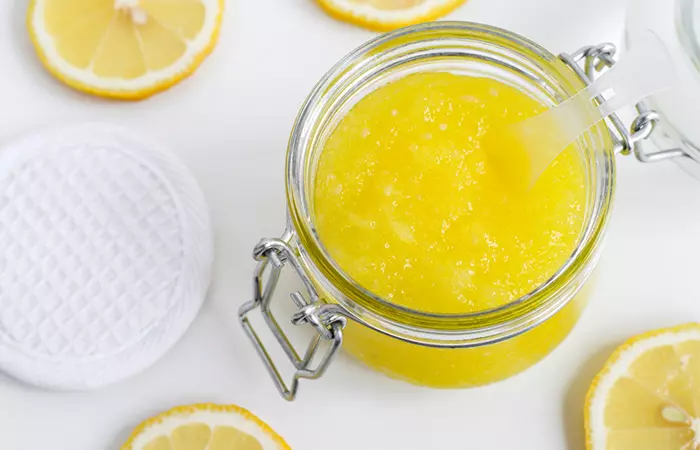
What You Need
- Lemon peel powder
- 2 tablespoons rice flour
- Milk
Process
- Mix the rice flour, a pinch of lemon peel powder, and cold milk until you get a thick paste.
- Spread the paste evenly on wet skin.
- Wash your face before the mask dries completely so it does not strip away your skin’s natural oils and moisture.
4. Lemon Peel Spot Treatment
Lemon peel contains alpha-hydroxy acids (AHAs) that exfoliate your skin.
What You Need
- Fresh lemon peels
- Water
Process
- Grind the lemon peels and mix them in water to make a thick paste.
- Apply the paste on age spots or areas of pigmentation and leave it on for an hour.
- Wash it off with water.
Caution: Avoid sunlight during and right after this treatment as lemon peel makes your skin photosensitivei A skin condition where the skin is very sensitive to sunlight and triggers an immune system response to it. .
5. Lemon Peel Hair Lightener
The citric acid in lemon peel has a bleaching effect, so it can be used as a hair lightener.
What You Need
- 2 cups of lemon peels
- Water
- 3 tablespoons coconut oil
Process
- Boil the lemon peels in water for an hour.
- Strain out the water in a bowl.
- Mix coconut oil in the lemon peel water.
- Apply this mixture evenly to your hair and leave it on for an hour.
- Wash it off with shampoo and condition your hair.
Caution: Don’t keep this mixture on your hair for more than an hour as it can make your hair brittle or dry.
6. Lemon Peel For Cracked Feet
What You Need
- 1 cup lemon peels (dried)
- Petroleum jelly
- Socks
Process
- Grate the lemon peels into a powder.
- Mix with the petroleum jelly to make a paste.
- Apply this paste on your feet.
- Put on socks and leave the paste on overnight.
7. Lemon Peel For Fungal Infection On Feet
What You Need
- 3 cups fresh lemon peels
- 6-7 cups of water
- Milk/olive oil/Epsom salt/essential oils of your choice
Process
- Boil the lemon peels in water for 20-30 minutes.
- Strain the water into a bowl.
- You can customize the rest of the ingredients according to your requirements. Mix in milk, olive oil, Epsom salt, or essential oils of your choice.
- Use this mixture as a foot bath for 30 minutes.
- Rinse and moisturize your feet.
8. Lemon Peel Nail Whitener
Using lemon peel on nails can remove discoloration.
What You Need
- A handful of lemon peels
- Water
Process
- Grind the lemon peels into a paste.
- Apply the paste to your nails and leave it on for a few minutes.
- Wash it off with water.
Uses Of Lemon Peel For Your Home
1. Lemon Peel All-Purpose Cleaner
Lemon peel is a non-toxic alternative for cleaning and disinfecting your house. The chemicals in lemon peel are potent and work as effective cleaners to remove stubborn stains such as kettle rings with mineral deposits or coffee/tea stains in mugs. The refreshing citrus scent is of great use in aromatherapy and is a great benefit of using lemon peel to prepare a DIY cleaner. Mixing boiled lemon peel water with vinegar or baking soda makes it an even more potent all-natural cleaner.
 Quick Tip
Quick Tip2. Lemon Peel Deodorizer
Lemon peels can be used to absorb bad odors in the fridge or trash can. Adding a few lemon peels in water and microwaving can deodorize and clean the microwave.
Rubbing grated lemon peel with coarse rock salt on a cutting board can sanitize it and keep it smelling fresh.
3. Lemon Peel Potpourri

A homemade citrus-scented potpourri can be prepared using lemon peel, dried flowers, and essential oils. This refreshing, all-natural room freshener can be prepared at home easily with almost no extra cost as it uses lemon peels that would most likely have been discarded.
4. Lemon Peel Insect Repellent
Lemon peels can be placed at strategic places in the kitchen and house to ward off bugs such as ants and cockroaches. Research is scarce about the mechanism behind this process, but insects – especially mosquitoes – do not like the smell of lemon and its derivatives such as lemon peels. Using lemon juice directly on your skin could be harsh on the skin. The essential oil extracted from lemon peel is more concentrated and useful in keeping pesky insects at bay. Using lemon peels is a cost-effective and simple alternative to control pests.
Other Uses Of Lemon Peels
- Fragrance
Don’t toss away your lemon peels! Instead, throw them in your fireplace or wood-burning stove for a delightful lemony fragrance to freshen up the room. Dried peels are even better since they contain oils that help them burn longer.
- Seed Starters In Lemon Halves
The lemon halves left after juicing can be put to good use. Just poke a few holes in the bottom for drainage, fill them with soil, and plant your small seeds. When it’s time, you can transplant the whole lemon cup outdoors.
- Lemon Zest For Recipes, Anytime
Save your lemon peels by freezing them so that you can use them when a recipe calls for lemon zest. You can also zest fresh lemons before using and store just the zest in the freezer. Keep it flat in a zip-top bag for easy access.
Now, you must be wondering, “can you eat lemon peel?” Scroll down the next section to find out.
Best Ways To Eat Lemon Peels
1. Culinary Uses Of Lemon Peel
Lemon zest or grated lemon peel is popularly used to flavor food as a garnish and to add flavor to soups, salads, flavored yogurt, and dressings.
Frozen lemons are grated to get lemon peel powder, which can be incorporated into marinades or used in seasonings to prepare dishes like lemon pepper fish and lemon pepper chicken. Lemon peel can be infused into cooking fats such as olive oil or butter to add a zesty flavor to dishes like noodles or pasta.
It can also be eaten as candied lemon peels and incorporated into various baked goods such as lemon meringue pie.
2. How To Make Lemon Peel Water
To get the health benefits of lemon peels, boil them in water and sip this delicious and healthy drink.
3. How To Prepare Lemon Peel Tea
Add lemon peel powder to boiling hot water. Mix in a tea powder or herbal mix of your choice. Adding ginger to this concoction makes for a delicious beverage.
4. How To Make Lemon Peel Powder
Lemons can be frozen and then grated the lemon peels finely to get lemon peel powder. Another method is to bake Lemon peels at 200°F (93°C) and crush it to get a powdered lemon peel.
 Quick Tip
Quick TipNutritional Value Of Lemon Peels
According to the USDA National Nutrient Database, a 100 g portion of lemon peel contains:
- 134 mg of calcium (1)
- 160mg of potassium (1)
- 129 mg of vitamin C (1)
- 6 g of fiber (1)
- 160 mg of potassium (1)
Considering how nutritionally dense lemon peel is, you must be wondering…
How Much Lemon Peel Should You Eat?
Although lemon peel has a rich nutritional profile, it needs to be consumed in moderation since it also contains oxalates that can cause kidney and gallbladder stones(44). Not more than 80 mg of oxalates should be taken (RDA), and one teaspoon of lemon peels contain 25 mg of oxalates. Therefore, keep the intake of lemon peel to less than 3 teaspoons a day.
Precautions And Side Effects Of Using Lemon Peel
Though lemon peel is generally considered safe for consumption, there have been reports of some side effects. Though research on this is limited, it is better to avoid lemon peels if you suffer from stones in the kidney or gallbladder, are prone to allergies, or are pregnant or lactating. Always consult a medical supervisor before making radical changes to your diet.
- Gallbladder Or Kidney Stones: Although lemon peels have been found to dissolve gallbladder stones in experimental models, a high concentration of lemon peels can be detrimental. Lemon peels are high in oxalates that can form stones when they crystallize with other minerals, such as calcium. Therefore, it is not advisable for people suffering from gallbladder or kidney stones to consume lemon peel (44)
- Potential Carcinogenic Effect: In animal studies, excess d-limonene has been found to be carcinogenic. However, the enzyme involved in this mechanism (protein α(2u)-globulin) is absent. So, there is no evidence to conclude that it can cause cancer in humans. However, it is safer to regulate intake (45).
- Skin Irritant: Frequent use of lemon and its byproducts can be harsh and corrosive on the skin. It can make your skin dry and sometimes result in swelling. Since lemon peel is potent and concentrated with nutrients and chemical compounds, it is better to do a patch test before using it on your skin (46).
D-limonene is listed in the Code of Federal Regulations as generally recognized as safe (GRAS). Though the Food and Drug Administration (FDA) has deemed lemon peel as safe, care should be taken to obtain lemons that are organically grown to avoid contamination with pesticides. Washing lemons with vinegar and baking soda thoroughly before grating the peel for lemon zest can help remove the pesticides (47).
Infographic: 7 Ways To Use Lemon Peels For Skin And Hair Care
Lemon peels are a good source of vitamin C, calcium, pectin, potassium, AHAs, fiber, and flavonoids. You can easily incorporate them into your skin and hair care routine. The peels can lighten your hair and exfoliate dead skin cells from your feet, elbows, and face. To know more about the various uses of lemon peels for your skin and hair, see the infographic below.
Some thing wrong with infographic shortcode. please verify shortcode syntaxThere are as many benefits to lemon peels as there are to lemons. The peels are a good source of bioactive compounds like vitamin C, minerals, and dietary fiber. Lemon peels have long been used to address skin problems, reduce acne, and treat fungal infections. In addition to being used in various culinary preparations, they can also be used to make DIY skin care scrubs, peels, masks, and insect repellents. However, excess consumption or frequent use of lemon peels may lead to some adverse effects. You may develop skin irritation, kidney stones, or allergic reactions. Speak to your doctor if you experience such symptoms.
Frequently Asked Questions
Can you substitute lemon zest for lemon peel?
Yes, both can be used interchangeably, even though zest is a small portion of the peel. Lemon peels are more concentrated in flavor, so when substituting for lemon zest, use only a third of the portion mentioned in the recipe. The potency of dried lemon peel is high, so the amount used can be reduced to accommodate the recipe.
How do you store lemon peels?
Lemons can be frozen for a week and grated. Alternatively, lemon peels can be dried or baked at 200°F for a minute. These dried peels can be crushed to make a fine powder, which can be safely stored in the refrigerator for a week.
Is lemon peel alkaline or acidic?
Lemon peel is acidic and has a pH of 4.5 as it contains citric and phytic acids.
Does lemon peel have more vitamin C than lemon juice?
Yes, lemon peel contains more vitamin C than lemon juice. It is said that a teaspoon of lemon zest is equivalent to two tablespoons of lemon juice
Illustration: Lemon Peel: Benefits And Uses For Skin, Hair, And Home

Image: Dall·E/StyleCraze Design Team
References
Articles on StyleCraze are backed by verified information from peer-reviewed and academic research papers, reputed organizations, research institutions, and medical associations to ensure accuracy and relevance. Read our editorial policy to learn more.
- Lemon peel, raw, FoodData Central, US Department of Agriculture.
https://fdc.nal.usda.gov/fdc-app.html#/food-details/167749/nutrients - The Inhibitory Effects of Anti-Oxidants on Ultraviolet-Induced Up-Regulation of the Wrinkling-Inducing Enzyme Neutral Endopeptidase in Human Fibroblasts, PLoS One, US National Library of Medicine, National Institutes of Health.
https://www.ncbi.nlm.nih.gov/pmc/articles/PMC5029912/ - Effect of Antioxidants Supplementation on Aging and Longevity, BioMed Research International,US National Library of Medicine, National Institutes of Health.
https://www.ncbi.nlm.nih.gov/pmc/articles/PMC3982418/ - The Roles of Vitamin C in Skin Health, Nutrients, US National Library of Medicine, National Institutes of Health.
https://www.ncbi.nlm.nih.gov/pmc/articles/PMC5579659/ - Use of citric acid and low concentrations of alpha-hydroxy acids for superficial skin treatment.,US20050084509A1, United States Patents.
https://patents.google.com/patent/US20050084509A1/en - Modulation of gut microbiota from obese individuals by in vitro fermentation of citrus pectin in combination with Bifidobacterium longum BB-46, Applied Genetics and Molecular Biotechnology, SpringerLink.
https://link.springer.com/article/10.1007/s00253-018-9234-8 - Pectin Delays Gastric Emptying and Increases Satiety in Obese Subjects, Gastroenterology, US National Library of Medicine, National Institutes of Health.
https://pubmed.ncbi.nlm.nih.gov/3169489/ - Dose-Dependent Effects of a Soluble Dietary Fibre (Pectin) on Food Intake, Adiposity, Gut Hypertrophy and Gut Satiety Hormone Secretion in Rats, PLoS One, US National Library of Medicine, National Institutes of Health.
https://www.ncbi.nlm.nih.gov/pmc/articles/PMC4300082/ - Scurvy in the Great Irish Famine: Evidence of Vitamin C Deficiency From a Mid-19th Century Skeletal Population, American Journal of Physical Anthropology, US National Library of Medicine, National Institutes of Health.
https://www.ncbi.nlm.nih.gov/pmc/articles/PMC3467765/ - Streptococcus mutans and oral streptococci in dental plaque, Canadian Journal of Microbiology, US National Library of Medicine, National Institutes of Health.
https://pubmed.ncbi.nlm.nih.gov/21217792/ - Effects of lemon peel extracts on lactate dehydrogenase and sucrase activity of Streptococcus mutans, Chinese Journal of Stomatology, US National Library of Medicine, National Institutes of Health.
https://pubmed.ncbi.nlm.nih.gov/21211244/ - Isolation and extraction of antimicrobial substances against oral bacteria from lemon peel, Journal of Food Science and Technology, US National Library of Medicine, National Institutes of Health.
https://www.ncbi.nlm.nih.gov/pmc/articles/PMC3551112/ - Calcium, Physical Activity and Bone Health – Building Bones for a Stronger Future, Public Health Nutrition, US National Library of Medicine, National Institutes of Health.
https://pubmed.ncbi.nlm.nih.gov/11255501/ - A novel osteoporosis model with ascorbic acid deficiency in Akr1A1 gene knockout mice, Oncotarget, US National Library of Medicine, National Institutes of Health.
https://www.ncbi.nlm.nih.gov/pmc/articles/PMC5352327/ - Antioxidant Status in Rheumatoid Arthritis and Role of Antioxidant Therapy. Clinical Chimica Acta, US National Library of Medicine, National Institutes of Health.
https://pubmed.ncbi.nlm.nih.gov/14637276/ - Vitamin C in Disease Prevention and Cure: An Overview, Indian Journal of Clinical Biochemistry, US National Library of Medicine, National Institutes of Health.
https://www.ncbi.nlm.nih.gov/pmc/articles/PMC3783921/ - Targeting Excessive Free Radicals With Peels and Juices of Citrus Fruits: Grapefruit, Lemon, Lime and Orange, Food and Chemical Toxicology, US National Library of Medicine, National Institutes of Health.
https://pubmed.ncbi.nlm.nih.gov/19770018/ - Limonene: Aroma of Innovation in Health and Disease, Chemico-Biological Interactions, US National Library of Medicine, National Institutes of Health.
https://pubmed.ncbi.nlm.nih.gov/29427589/ - Gastroprotective Effect of Limonene in Rats: Influence on Oxidative Stress, Inflammation and Gene Expression, Phytomedicine, US National Library of Medicine, National Institutes of Health.
https://pubmed.ncbi.nlm.nih.gov/30668410/ - In Vitro Studies on Phytochemical Content, Antioxidant, Anticancer, Immunomodulatory, and Antigenotoxic Activities of Lemon, Grapefruit, and Mandarin Citrus Peels, Asian Pacific Journal of Cancer Prevention, US National Library of Medicine, National Institutes of Health.
https://pubmed.ncbi.nlm.nih.gov/27510009/ - Inhibition of growth and metastasis of human gastric cancer implanted in nude mice by d-limonene, World Journal of Gastroenterology, US National Library of Medicine, National Institutes of Health.
https://www.ncbi.nlm.nih.gov/pmc/articles/PMC4572353/ - D-limonene Induces Apoptosis of Gastric Cancer Cells, Zhonghua Zhong Liu Za Zhi, US National Library of Medicine, National Institutes of Health.
https://pubmed.ncbi.nlm.nih.gov/12921557/ - Flavonoids, Flavonoid Subclasses and Breast Cancer Risk: A Meta-Analysis of Epidemiologic Studies, PLoS One, US National Library of Medicine, National Institutes of Health.
https://pubmed.ncbi.nlm.nih.gov/23349849/ - Inhibition by D-limonene of Gastric Carcinogenesis Induced by N-methyl-N’-nitro-N-nitrosoguanidine in Wistar Rats, Cancer Letters, US National Library of Medicine, National Institutes of Health.
https://pubmed.ncbi.nlm.nih.gov/10374833/ - Anticancer Activities of Citrus Peel Polymethoxyflavones Related to Angiogenesis and Others, BioMed Research International, US National Library of Medicine, National Institutes of Health.
https://www.ncbi.nlm.nih.gov/pmc/articles/PMC4163462/ - The effect of Citrus Aurantifolia (Lemon) peels on cardiometabolic risk factors and markers of endothelial function in adolescents with excess weight: A triple-masked randomized controlled trial, Medical Journal of the Islamic Republic of Iran, US National Library of Medicine, National Institutes of Health.
https://www.ncbi.nlm.nih.gov/pmc/articles/PMC5307599/ - Role of Potassium in Regulating Blood Flow and Blood Pressure, American Journal of Physiology. Regulatory, Integrative and Comparative Physiology, US National Library of Medicine, National Institutes of Health.
https://pubmed.ncbi.nlm.nih.gov/16467502/ - The Hypocholesterolemic Effect of Lemon Peels, Lemon Pectin, and the Waste Stream Material of Lemon Peels in Hybrid F1B Hamsters, European Journal of Nutrition, US National Library of Medicine, National Institutes of Health
https://pubmed.ncbi.nlm.nih.gov/11990004// - Dietary Pectin With High Viscosity Lowers Plasma and Liver Cholesterol Concentration and Plasma Cholesteryl Ester Transfer Protein Activity in Hamsters, The Journal of Nutrition, US National Library of Medicine, National Institutes of Health
https://pubmed.ncbi.nlm.nih.gov/9808647/ - Preventive and Ameliorating Effects of Citrus D-limonene on Dyslipidemia and Hyperglycemia in Mice With High-Fat Diet-Induced Obesity, European Journal of Pharmacology, US National Library of Medicine, National Institutes of Health.
https://pubmed.ncbi.nlm.nih.gov/23838456/ - Flavonoid Intake and Risk of CVD: A SystemMeta-Analysis of Prospective Cohort Studies, The British Journal of Nutrition, US National Library of Medicine, National Institutes of Healthatic Review and
https://pubmed.ncbi.nlm.nih.gov/23953879/ - Effect on Blood Pressure of Daily Lemon Ingestion and Walking, Journal of Nutrition and Metabolism, US National Library of Medicine, National Institutes of Health
https://www.ncbi.nlm.nih.gov/pmc/articles/PMC4003767/ - Bactericidal Activity of Lemon Juice and Lemon Derivatives Against Vibrio Cholerae, Biological &Pharmaceutical Bulletin, US National Library of Medicine, National Institutes of Health.
https://pubmed.ncbi.nlm.nih.gov/11041258/ - Antimicrobial and Antibiofilm Activities of Citrus Water-Extracts Obtained by Microwave-Assisted and Conventional Methods, Biomedicines, US National Library of Medicine, National Institutes of Health.
https://www.ncbi.nlm.nih.gov/pmc/articles/PMC6026940/ - Lemon Peels Mediated Synthesis of Silver Nanoparticles and Its Antidermatophytic Activity,
Spectrochimica acta. Part A, Molecular and biomolecular spectroscopy, US National Library of Medicine, National Institutes of Health.
https://pubmed.ncbi.nlm.nih.gov/24486863/ - D-Limonene: Safety and Clinical Applications, Alternative Medicine Review, US National Library of Medicine, National Institutes of Health.
https://pubmed.ncbi.nlm.nih.gov/18072821/ - Medical Dissolution of Gallstones. Clinical Experience of D-Limonene as a Simple, Safe, and Effective Solvent, Digestive Diseases and Sciences, US National Library of Medicine, National Institutes of Health.
https://pubmed.ncbi.nlm.nih.gov/1988264/ - A Useful Cholesterol Solvent for Medical Dissolution of Gallstones, Gastroenterologia Japonica, US National Library of Medicine, National Institutes of Health.
https://pubmed.ncbi.nlm.nih.gov/1526435/ - Influence of Vitamin C on Lymphocytes: An Overview, Antioxidants (Basel), US National Library of Medicine, National Institutes of Health.
https://pubmed.ncbi.nlm.nih.gov/29534432/ - Vitamin C and Immune Function, Nutrients, US National Library of Medicine, National Institutes of Health.
https://pubmed.ncbi.nlm.nih.gov/29099763/ - Dietary Dehydrated Lemon Peel Improves the Immune but Not the Antioxidant Status of Gilthead Seabream (Sparus Aurata L.), Fish Shellfish Immunology, US National Library of Medicine, National Institutes of Health.
https://pubmed.ncbi.nlm.nih.gov/28359944/ - Immunoglobulin Isotypes: Structure, Function, and Genetics, Origin and Evolution of the Vertebrate Immune System, SpringerLink.
https://link.springer.com/chapter/10.1007/978-3-642-59674-2_9 - Self-Care for Common Colds: The Pivotal Role of Vitamin D, Vitamin C, Zinc, and Echinacea in Three Main Immune Interactive Clusters (Physical Barriers, Innate and Adaptive Immunity) Involved During an Episode of Common Colds-Practical Advice on Dosages and on the Time to Take These Nutrients/Botanicals in Order to Prevent or Treat Common Colds, Evidence-based Complementary and Alternative Medicine, US National Library of Medicine, National Institutes of Health.
https://pubmed.ncbi.nlm.nih.gov/29853961/ - Oxalate content of foods and its effect on humans, Asia Pacific Journal of Clinical Nutrition, US National Library of Medicine, National Institutes of Health.
https://pubmed.ncbi.nlm.nih.gov/24393738/ - Safety Evaluation and Risk Assessment of d-Limonene., J Toxicol Environ Health B Crit Rev., US National Library of Medicine, National Institutes of Health
https://pubmed.ncbi.nlm.nih.gov/23573938/ - Dual Effects of Alpha-Hydroxy Acids on the Skin, Molecules, US National Library of Medicine, National Institutes of Health.
https://www.ncbi.nlm.nih.gov/pmc/articles/PMC6017965/ - Comparison of Different Home/Commercial Washing Strategies for Ten Typical Pesticide Residue Removal Effects in Kumquat, Spinach and Cucumber, International Journal of Environmental Research and Public Health, US National Library of Medicine, National Institutes of Health.
https://www.ncbi.nlm.nih.gov/pmc/articles/PMC6388112/
Read full bio of Yvonne O’ Halloran
Read full bio of Ravi Teja Tadimalla
Read full bio of Arshiya Syeda
Read full bio of Sindhu Koganti







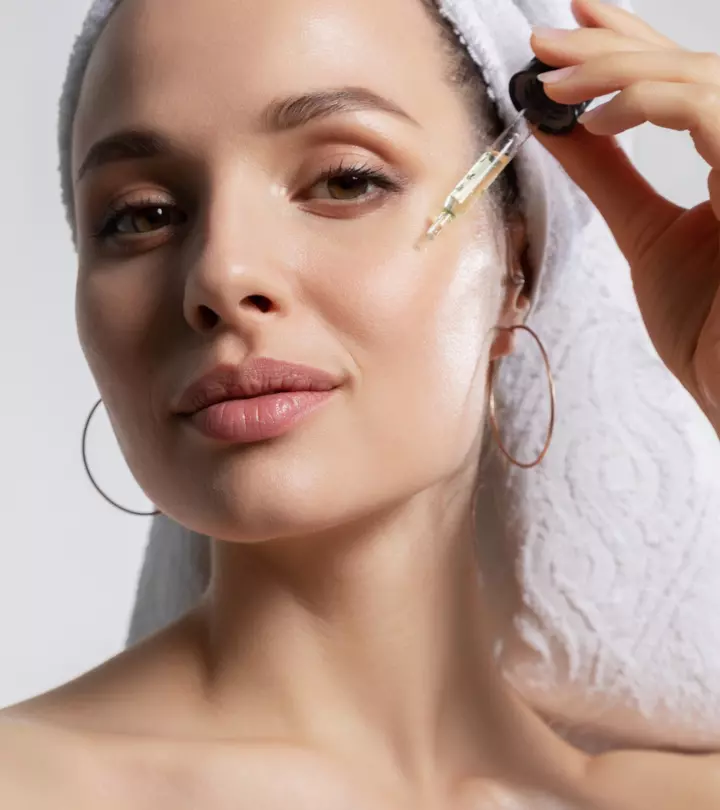







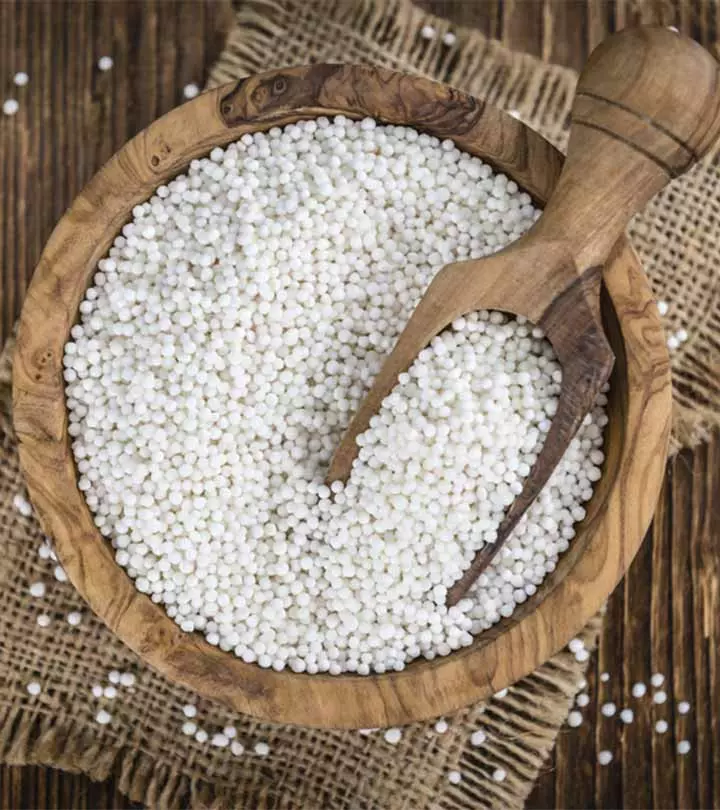
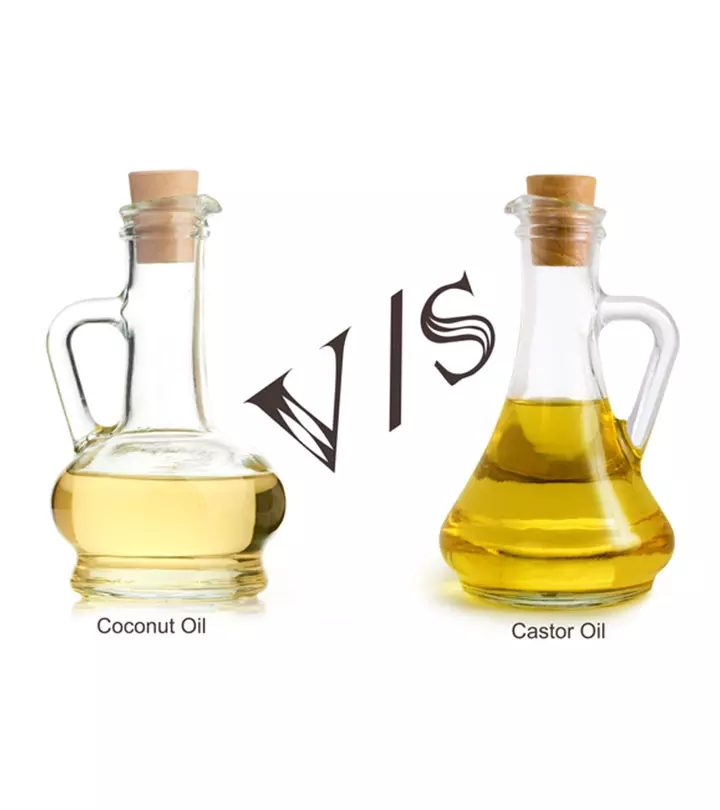
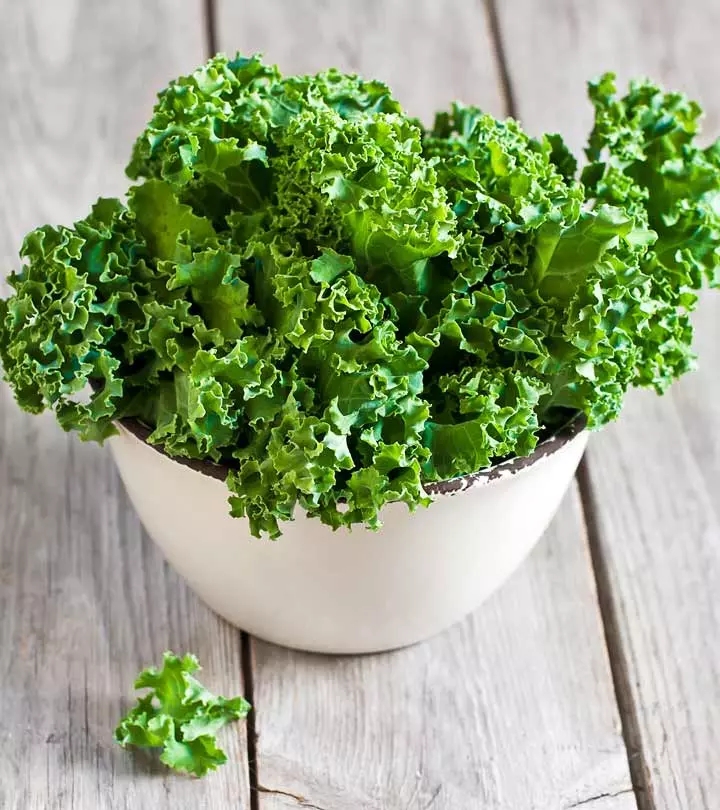


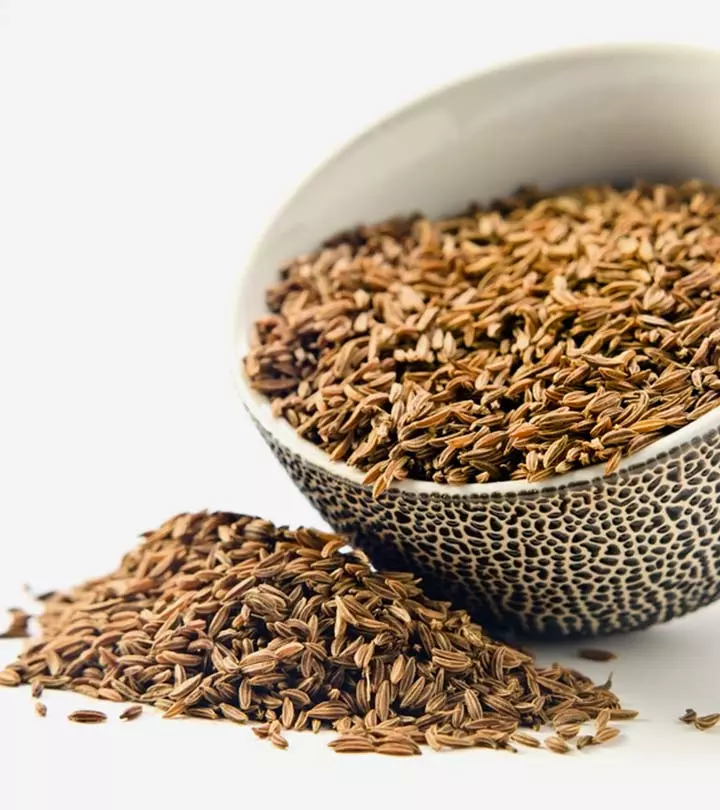
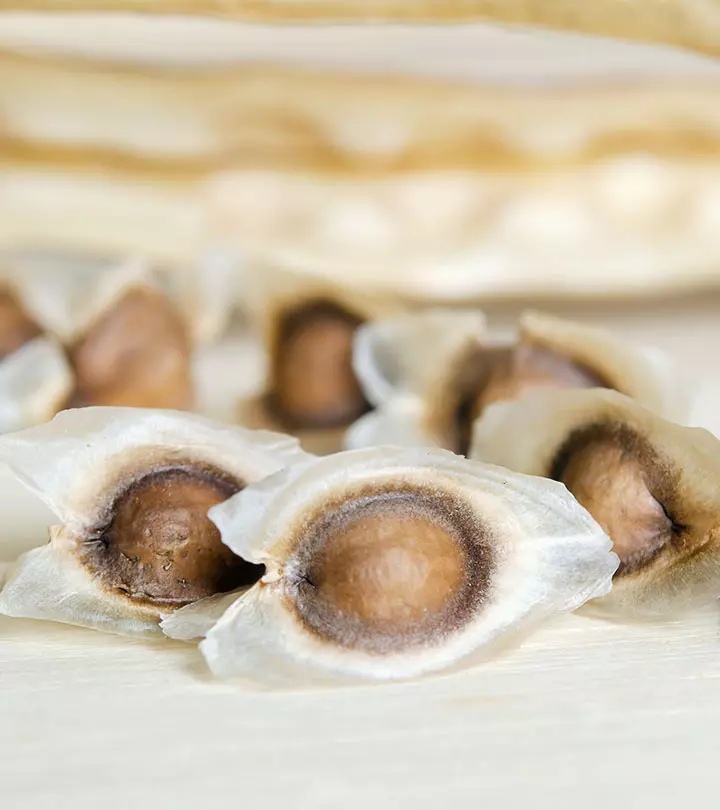

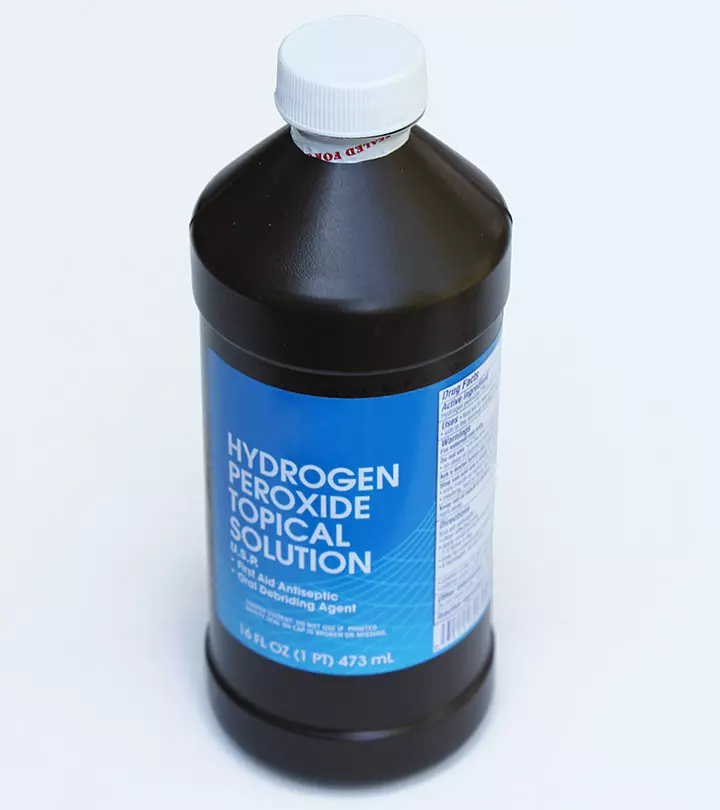

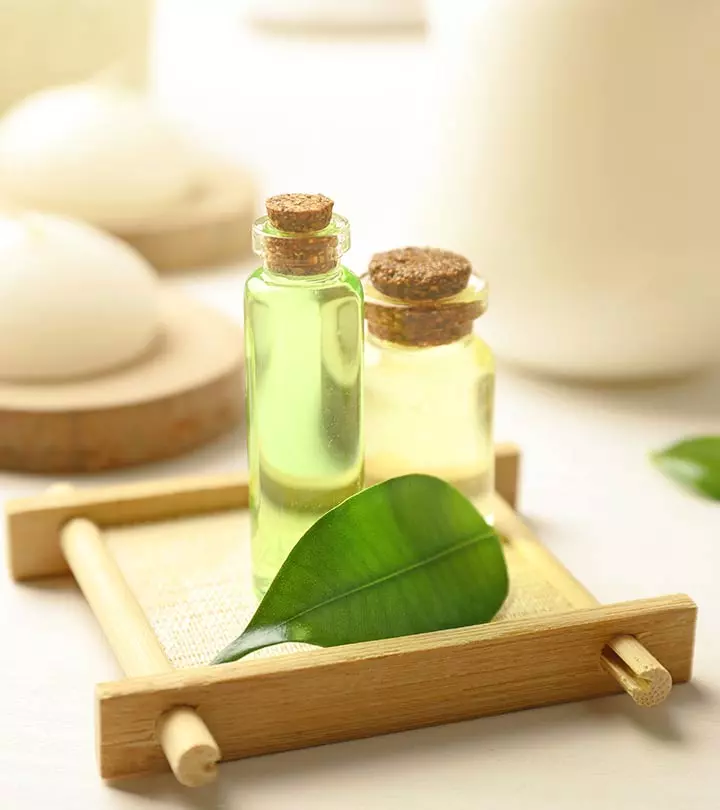
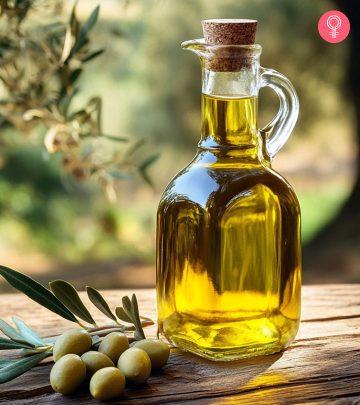
Community Experiences
Join the conversation and become a part of our empowering community! Share your stories, experiences, and insights to connect with other beauty, lifestyle, and health enthusiasts.